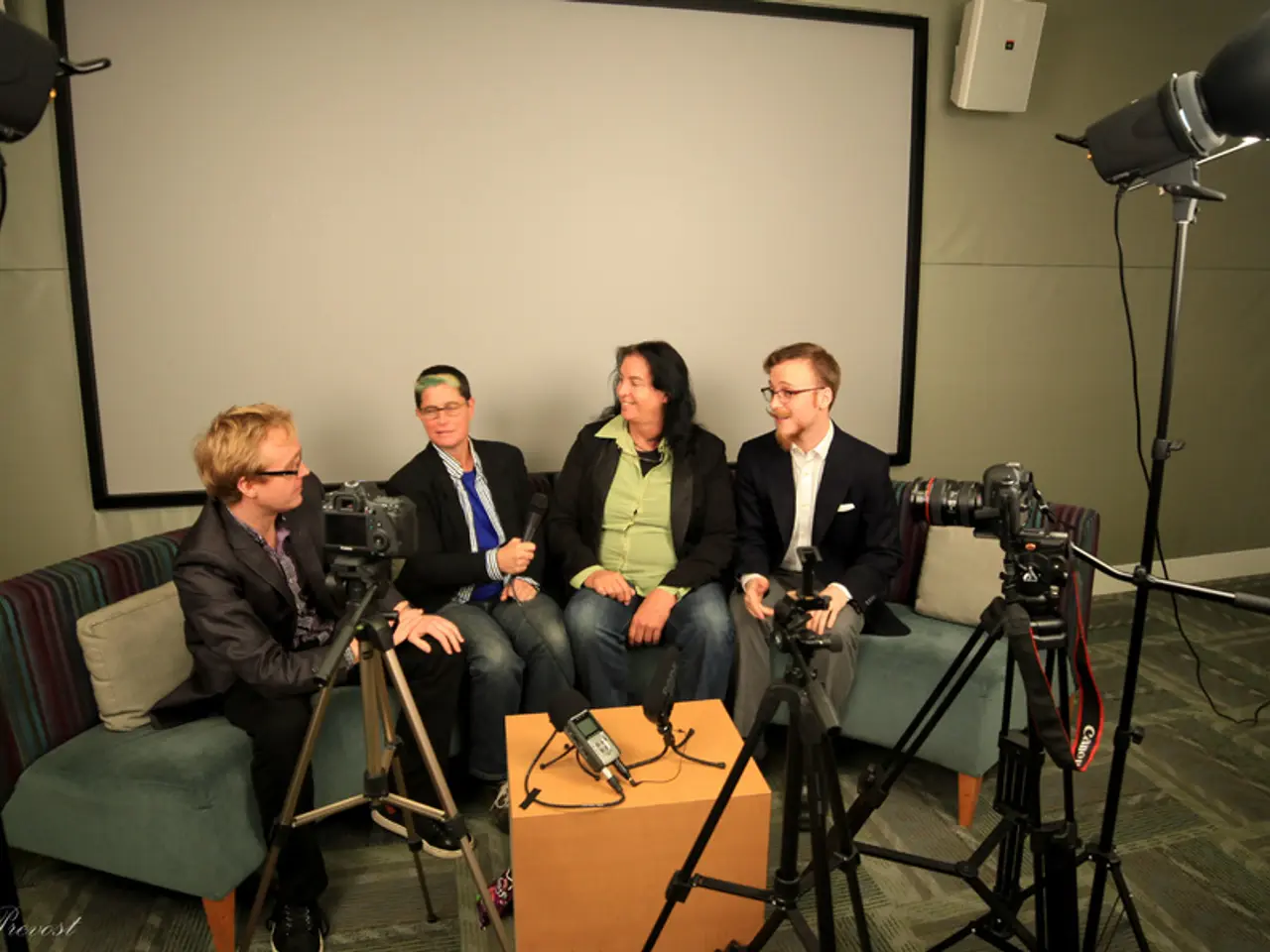Strategies for choosing your forthcoming tech talent
In the ever-evolving world of technology, it's no longer enough for coding candidates to simply possess technical fluency. Companies are now focusing on evaluating a candidate's interpersonal skills, creative thinking, and collaborative abilities to ensure they become highly successful and valued employees.
Behavioral Interviewing
One effective strategy is integrating behavioral and situational interview techniques into the hiring process. By asking candidates to describe past experiences related to teamwork, conflict resolution, and explaining technical concepts to non-technical audiences, employers can reveal communication skills, emotional intelligence, and professionalism.
For example:
- "Tell me about a time when you had to explain a complex technical issue to a non-technical person."
- "Describe a situation where you collaborated with a difficult colleague. How did you manage that?"
These questions provide insights into a candidate's interpersonal skills and ability to work effectively in a team.
Role-playing Exercises
Role-playing exercises or scenarios that simulate collaborative problem-solving allow employers to observe adaptability, creative thinking, and interpersonal interaction in real-time. Candidates who adjust communication styles and show flexibility demonstrate strong collaboration skills.
Emotional Intelligence Assessments
Assessing a candidate’s emotional intelligence through specific tools like the EQ-i 2.0 or targeted interview questions focusing on empathy, conflict management, and active listening is another key strategy. High emotional intelligence correlates with effective teamwork and leadership.
Familiarity with Collaboration Tools
Evaluating a candidate’s familiarity with collaboration tools such as Slack, Trello, or Asana indicates their willingness and ability to work effectively in structured team environments.
Motivation and Problem-Solving Approaches
Inquiring about motivation and problem-solving approaches helps understand a candidate's creativity and perseverance. For instance, asking how they handle being stuck on a problem can reveal resourcefulness and openness to seeking help, key for collaborative and innovative work.
Cultural Fit Assessment
Behavioral interviewing can also be used to assess cultural fit and alignment with core team values. Shared values correlate with higher team satisfaction and engagement.
By combining these strategies, companies can assess the “soft skills” alongside technical expertise, recognising that success in coding roles often depends on both domains working together.
It's important to note that candidates who focus only on getting the right answer may not be the right people for the job due to lack of collaborative skills. Standard practices of code challenges and problem-solving questions can help identify candidates who are weak technically.
Non-technical team members should also interview the candidate and provide their feedback. Inquiring about a candidate's interests outside of work can help create a personal connection with the engineer.
In conclusion, the future of tech hiring lies in balancing technical expertise with interpersonal skills, creative thinking, and collaborative abilities. By adopting these strategies, companies can build strong, productive, and innovative teams.
- To evaluate a well-rounded coding candidate, companies could incorporate behavioral interviewing techniques that probe past experiences in teamwork, explaining technical concepts to non-technical audiences, and managing conflicts, as these demonstrate communication skills, emotional intelligence, and professionalism.
- By using role-playing exercises or scenarios, companies can observe a candidate's adaptability, creative thinking, and interpersonal interaction in real-time, and gauge their collaboration skills by assessing how they communicate and adjust during problem-solving situations.




